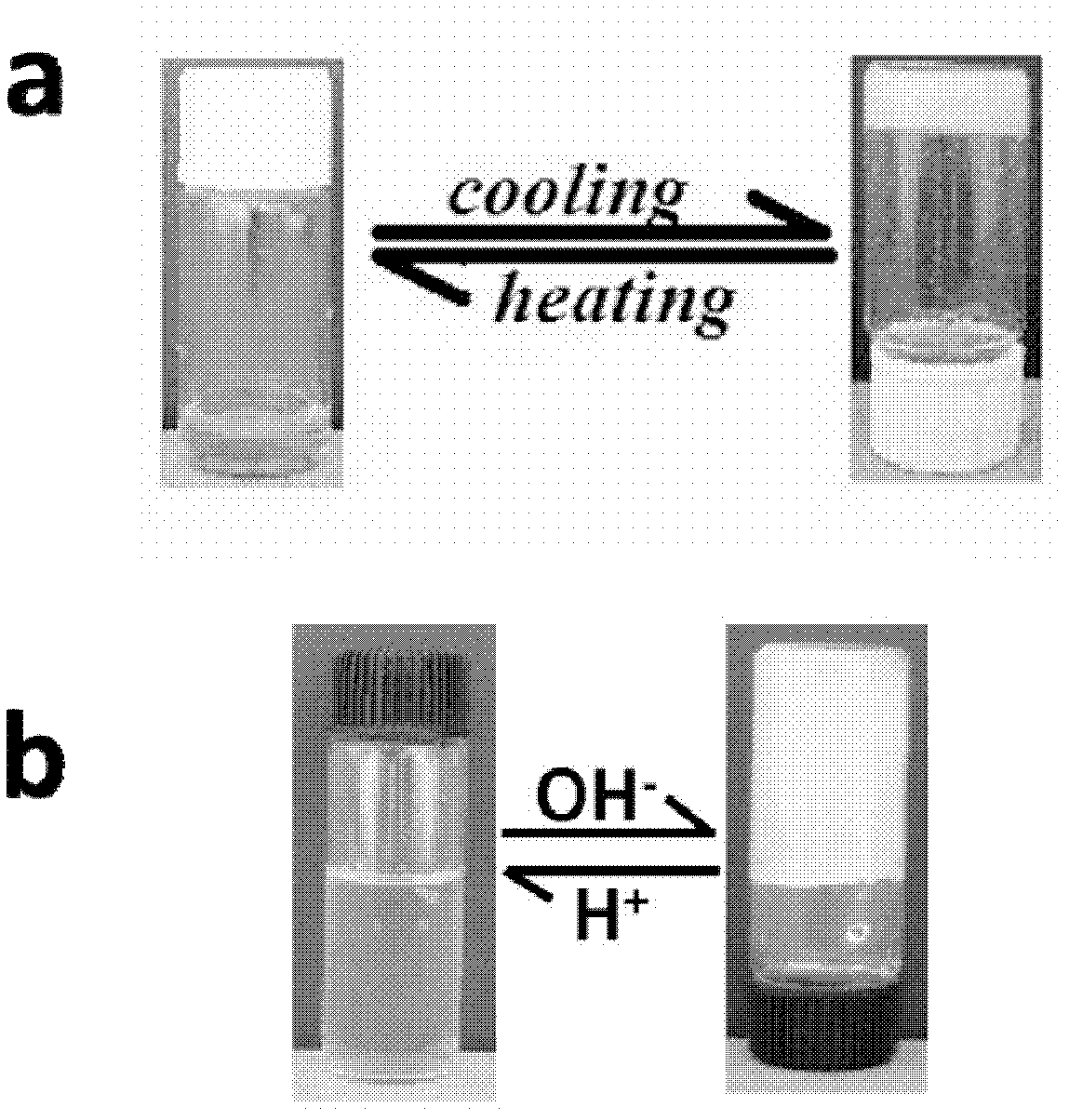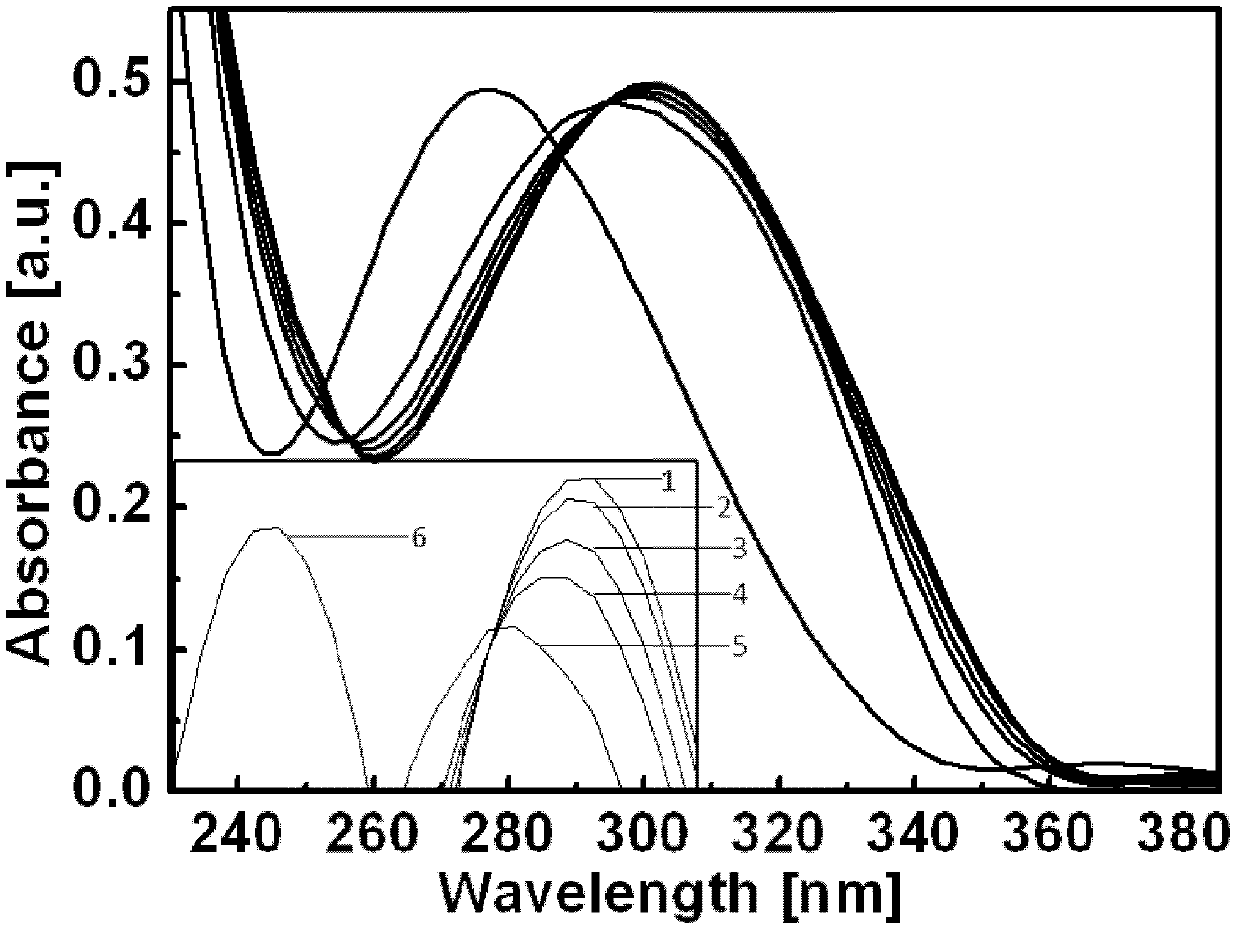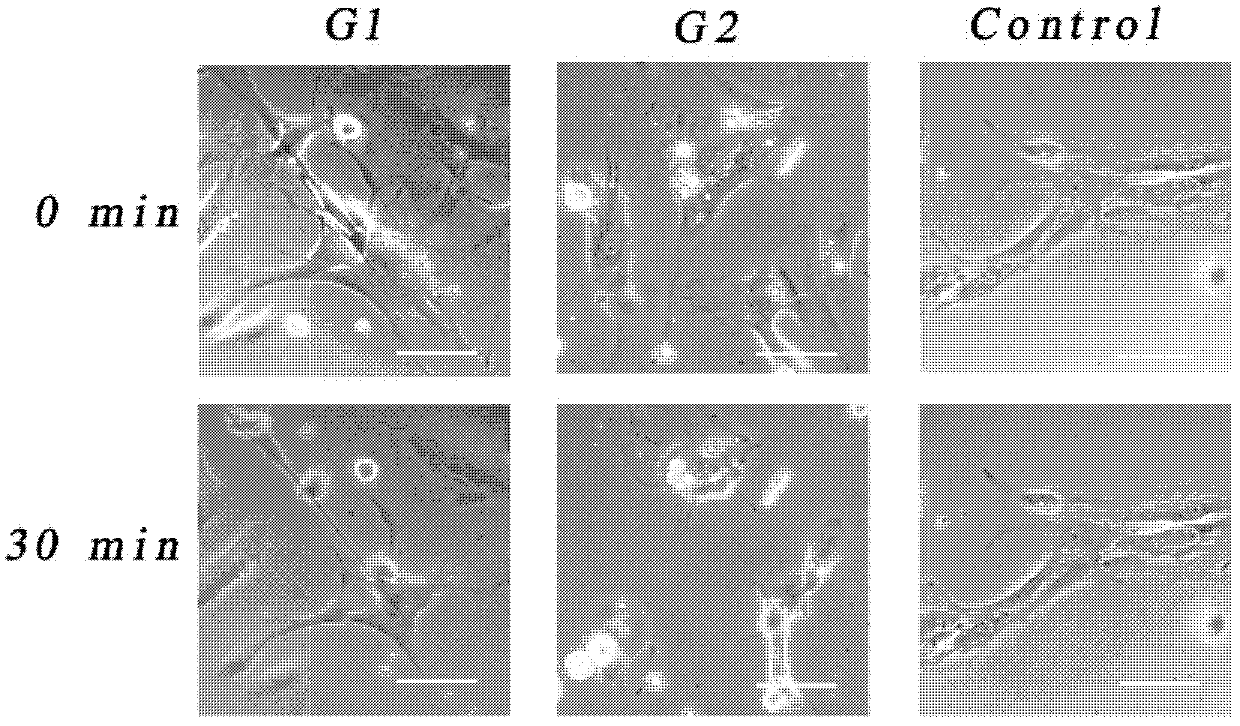Nanogel scaffold material for culturing and desorbing type of cells and preparation method thereof
A technology of cell culture and nanogel, applied in the field of biology, to achieve the effect of avoiding cell function damage
- Summary
- Abstract
- Description
- Claims
- Application Information
AI Technical Summary
Problems solved by technology
Method used
Image
Examples
Embodiment 1
[0049] This example is an example of the preparation method of a nanogel scaffold material used for cell culture and desorption.
[0050] This embodiment provides a nanogel scaffold material for a type of cell culture and detachment, which is formed by self-assembly of low molecular weight gel factors G1 and G2;
[0051] The structural formula of the low molecular weight gel factor is:
[0052]
[0053] in: when When , the low molecular weight gel factor is G1; when When , the low molecular weight gelling factor is G2.
[0054] The nanogel scaffold material for one type of cell culture and desorption can be prepared by adjusting the solvent temperature or pH value.
[0055] The preparation method of the nanogel scaffold material used for a class of cell culture and detachment comprises the following steps:
[0056] Step 1, take 1,4-cyclohexanedicarboxylic acid, L-phenylalanine methyl ester hydrochloride, histamine, BOC-L-lysine, N,N'-carbonyldiimidazole, anhydrous...
Embodiment 2
[0074] This example is an example of reversibly regulating the self-assembly of low-molecular-weight gelling factors by pH.
[0075] Prepare three samples of gel factor G1 respectively: (a) 0.1wt% G1 aqueous solution prepared by dissolving G1 by heating and then cooling; HCl adjusts the pH value of the solution to 3.5; (c) the 0.1wt% G1 aqueous solution prepared by heating and dissolving G1 and then cooling the solution, adjusts the pH value of the solution to 2 with 1M HCl, and then adjusts the pH value of the solution to 7.4 with 2M NaOH. Immerse the mica flakes in the above samples (a), (b) and (c) respectively, take out the mica flakes after 24 hours, dry them at normal temperature and pressure, and observe with an atomic force microscope that the gel factor G1 has a very strong Self-assembly ability, network-like nanofibers can be formed by heating and cooling; the pH value of the G1 solution is adjusted to acidity, and the repulsion of the protonation of the gelling fact...
Embodiment 3
[0077] This example is an example of regulating the self-assembly of low-molecular-weight gelling factors through mild pH changes.
[0078] Prepare the G1 aqueous solutions with pH values of 7.4, 7.2, 7.0, 6.5, 6.0, and 3.5 respectively, and the G1 concentration is 0.018wt%, and the G1 solutions of the above-mentioned different pH values are detected by ultraviolet-visible spectroscopy ( Figure 4 ). It can be seen from the ultraviolet-visible spectrum that when the pH is 7.4, the maximum absorption peak is at 302nm, corresponding to the characteristic peak of the self-assembly of G1 gelling factor to form nanofibers; when the pH is 3.5, the maximum absorption peak is at 278nm, corresponding to the protonation The characteristic absorption peak of G1 dispersed single molecule. As the pH value of the solution decreased, the self-assembled system was destroyed, the energy of the system increased, and the absorption peak shifted blue. In particular, when the pH of the G1 so...
PUM
| Property | Measurement | Unit |
|---|---|---|
| diameter | aaaaa | aaaaa |
Abstract
Description
Claims
Application Information
 Login to View More
Login to View More - R&D
- Intellectual Property
- Life Sciences
- Materials
- Tech Scout
- Unparalleled Data Quality
- Higher Quality Content
- 60% Fewer Hallucinations
Browse by: Latest US Patents, China's latest patents, Technical Efficacy Thesaurus, Application Domain, Technology Topic, Popular Technical Reports.
© 2025 PatSnap. All rights reserved.Legal|Privacy policy|Modern Slavery Act Transparency Statement|Sitemap|About US| Contact US: help@patsnap.com



